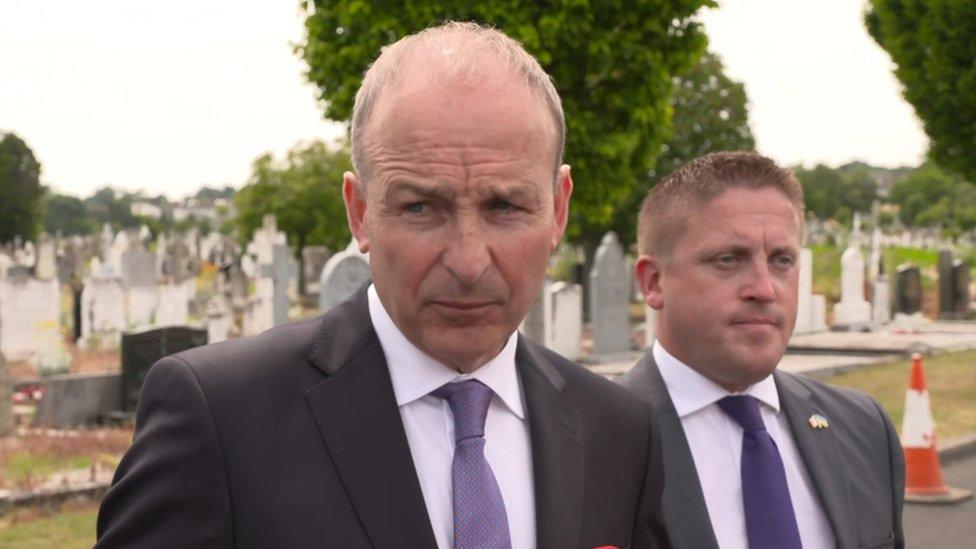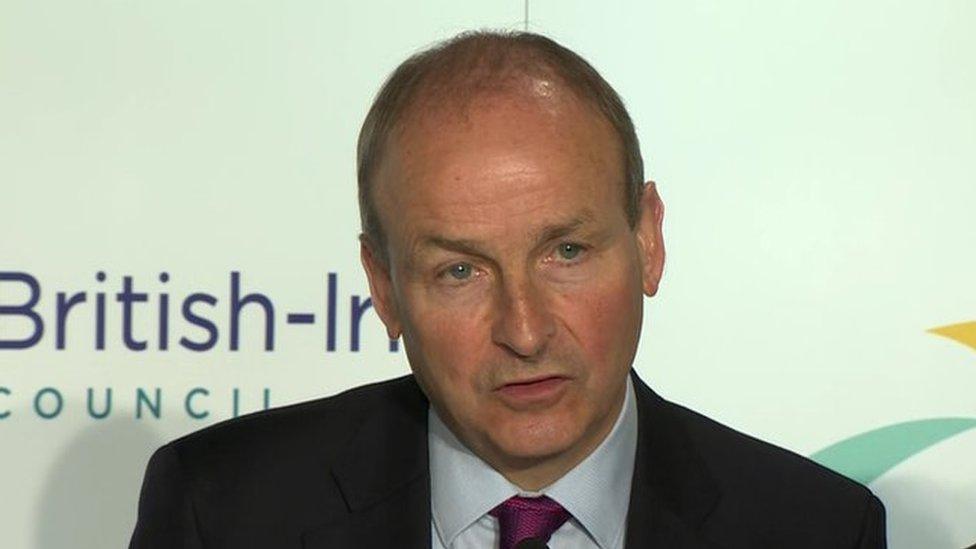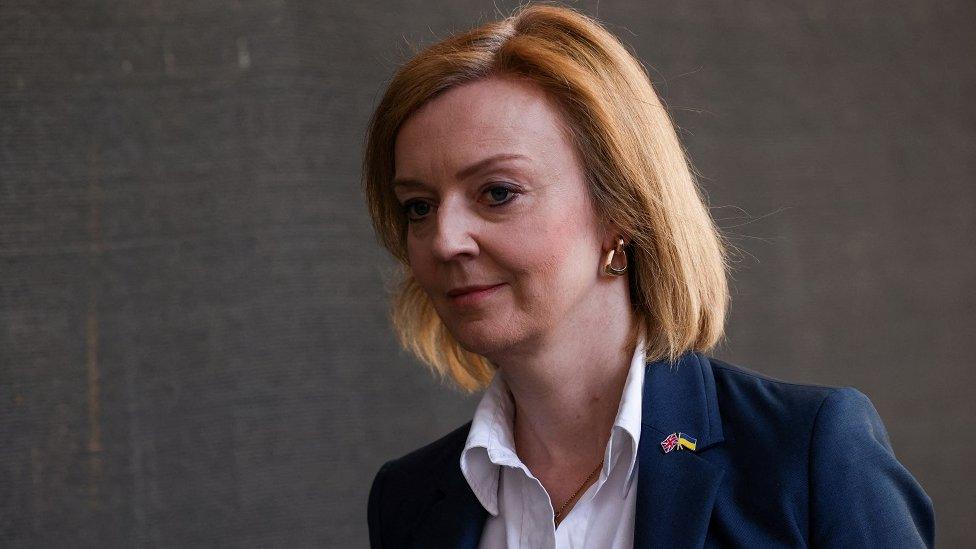Restoring power-sharing a priority, says Micheál Martin
- Published

Micheál Martin says "there are vast areas where we simply do not know enough about each other on both sides of the border"
Too little has been done to improve understanding and cooperation across the island of Ireland since the Good Friday Agreement, the taoiseach (Irish PM) has said.
Micheál Martin called for an end of the "destructive cycle" of parties collapsing democratic institutions.
He made the remarks at a commemoration event in Dublin for former taoiseach and Fianna Fáil leader Seán Lemass.
Her said restoring power-sharing at Stormont was the "first priority".
Sinn Féin won the most seats in May's assembly election but the DUP will not re-enter a power-sharing executive until its concerns about the Northern Ireland protocol are addressed.
The protocol is part of the 2019 Brexit deal and keeps Northern Ireland in the EU's single market for goods, preventing a hard border with the Republic of Ireland.
"There are vast areas where we simply do not know enough about each other on both sides of the border," he said.
He said "too few connections" had been built and too little "practical and hard work of finding out exactly what are the similarities and differences between us" had been done.
'Crisis to be covered'
He also claimed there was a lack of media coverage of Northern Ireland.
Mr Martin said that the Dublin-based media only report on Northern Ireland when there is a "crisis to be covered".
"Therefore it is more open to being defined by the loudest voices, missing those in the middle and missing the greater diversity of the society," he added.
"We have to restore trust that politics is not just a zero-sum game where there can only be one group who comes out ahead," he said.
"We have to show people that their welfare now is as much of a concern as is choices which may arise in the future," he added.
"It is remarkable how often it is that those who are loudest in calling for national unity who are the most divisive in how they treat people who don't agree with their particular priorities," he said.
Related topics
- Published8 July 2022

- Published14 June 2022
